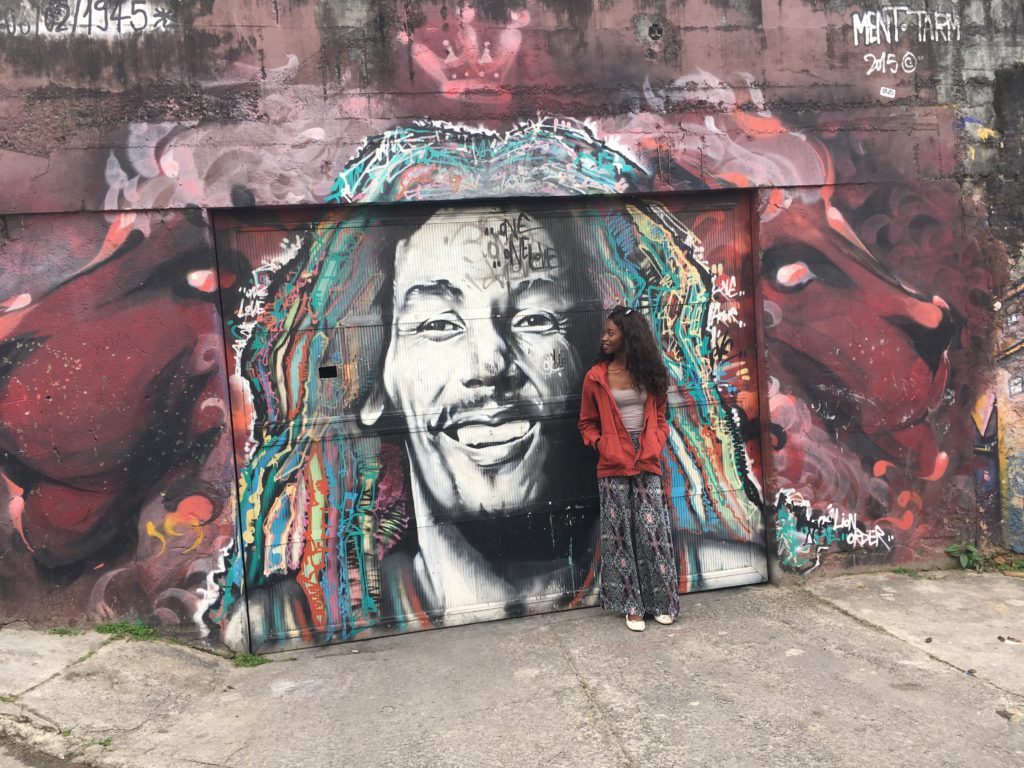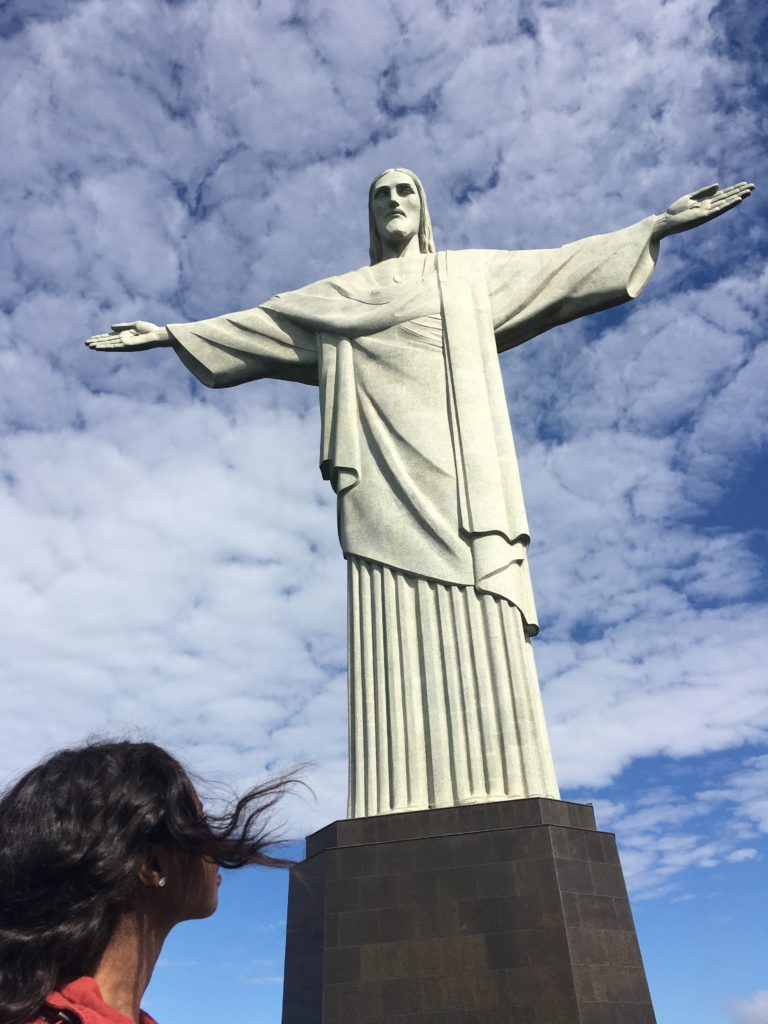They warned me not to go to the favelas. Apparently, it’s the one place in all of Rio de Janeiro I dare not enter.
“Be careful,” they’d say.
Careful, of what? No one ever specified.
The favelas, as far as I had learned, were the slums of Brazil. Before I had ever uttered my first “obrigada,” there was The Ranch, a grim place which exposed interns to conditions we might experience during our summer of research in our respective countries.
The first (and last, thank goodness) time I ever experienced The Ranch was during a mandatory weekend retreat I’d attended with other program finalists, each likeminded in our eagerness to be sent thousands of miles away from home and hopeful for an official spot in the program.
Throughout The Ranch were simulations of slums from different parts of the globe. Some finalists went to the Africa site for the night while those destined for South America spent the night in a different simulation snug enough to fill the entire floor with sleeping bags. The space had little room for walking, let alone breathing.
I can still remember the harsh sound of rain pounding on our tin roof that night. Several hours into unsuccessful sleep, I pleaded silent, hopeful cries to God for my bladder to make it through the storm. I couldn’t imagine stumbling across the small shack, avoiding the heads of those who miraculously found rest between the hardness of the wooden floor below and the harshness of the winds above. After that obstacle course, I’d have to walk several paces away to an outhouse in a location unbeknownst to me, with nothing but the moonlight above to guide my path. We’d seen various animals that day and one could only imagine the critters that might lurk in the nighttime. All things considered, returning to the shack with a satin night scarf drenched in rain was the least of my worries.
My bladder did not make it. But thanks to the kindness of another program finalist in a neighboring sleeping bag, I didn’t have to make the trip to the outhouse alone.
I like to think God used that night as a teachable moment. To this day, I am grateful for every spontaneous midnight trip to the toilet that doesn’t involve a trip outside to an outhouse nestled within whatever the weather has graced us with that day.
Our time at The Ranch had been spent rationing and trading goods throughout our simulated under-resourced communities. It didn’t take long to realize that this wasn’t just a casual activity, but rather one that would determine what we would eat that night. Only one group’s community had access to running water, while the rest of us did without. No celebratory pizza party awaited us all at the end of our long, peculiar day trading our limited number of resources. Chopped potatoes for dinner and unseasoned grits for breakfast were ultimately the rewards for our labor.
Admittedly, I requested permission to spend a portion of the day in a shaded corner of our shack preparing for an upcoming medical exam. Amid the conditions, I’m not sure that I got much done with having to periodically explain to onlookers how much information I was expected regurgitate on Monday’s exam, and why I had special permission to prepare during our activity.
For our short time at The Ranch, roughing it was our way was our life. After returning to normalcy, prior to our departure, I realized how something as simple as a warm meal and hot shower, or lack thereof, impacts my physical and mental wellbeing. Being clean and well-fed is a privilege. Since my time at the Ranch, I have experienced more of the world and I recognize how easy it is to forget these privileges when you have access to them everyday.
Thankfully, during the months I spent in Brazil I was not housed in a shack, or anything remotely like it. Instead, I was fortunate to share a two-bedroom apartment in Curitiba with a kind, local medical student who helped me navigate both the city and language barrier. She even helped plan an out-of-town trip to see the beautiful Iguazu Falls with a couple of other interns staying in a different Brazilian city.
My experience at the Ranch wasn’t great, but it was meaningful because it piqued my curiosity about favelas. During my internship, whenever I rode past make-shift homes or poverty-stricken communities along the backroads of Brazil, I recognized my privilege in having only endured what the conditions might be like for a weekend, and I couldn’t wrap my mind around what it might be like to experience it for a lifetime.

Making the decision to visit the beautiful city of Rio de Janeiro during my summer internship was a choice and visiting the favelas while there was a risk, both mine to make, despite the unanimous advice not to do so.
I didn’t know the day my flight to Rio de Janeiro would be the day I’d say goodbye to my Brazilian roommate prematurely. Shortly into my stay in Rio, I found out that she needed to take an unplanned trip to her hometown.
After Rio, there would only be a few days before my scheduled return to the US, leaving my roommate and I no opportunity to see one another again. The last I saw her was when she took me to the airport, after supporting me through the worst bout of stomach pain I’d ever experienced. I had been awoken by aches in the middle of the night and didn’t find relief from the pain until shortly before my flight boarded, just as I’d started to contemplate canceling. To put it plainly, my entire digestive system decided to empty itself completely in my final hours with her in Curitiba. Rio de Janeiro was spectacular, but I was sad to have not had a proper goodbye with my roommate before my departure. In the months that I lived with her in Curitiba, she and I formed a special bond. Like all travel stories, ours was meaningful and beautiful, even our unplanned ending.
Admittedly, the trip to Rio de Janeiro alone came with the anticipated company of a new friend I’d meet on arrival. He had previously worked in the favelas. For him, Rio was a place he once called home. I’m grateful our paths crossed for the brief, yet meaningful days we spent exploring the city. His perspective is one I’ve grown to appreciate. Rio was a dream, and my new friend was a great guide.
The sunset at Ipanema beach was one of many sights I got to see. Earlier that day, I’d watched the sunrise at Copacabana beach. After sunrise, he guided the way to a train we’d take to the top of Mount Corcovado to view the iconic statue of Christ on every traveler’s site list. The statue was packed with other tourists, all gathered at Jesus’ garment-covered feet—which, to me only adds to the wonder of the historic site. The landmark is ginormous. And the view of Rio de Janeiro from the mountain’s peak may very well be one of the best sights I’ve seen in all my travels, a close second to the views from Santorini.

Beneath the Christ the Redeemer statue is a small chapel I discovered while wandering off on my own to capture a few moments in solitude. The brief prayer I prayed in the chapel is stored safely in time, a sweet memory I pray returns to me someday.
The incredible experiences I’ve had living life as a foreigner hardly ever make it onto the pages of my journal. I never manage to tuck every single memory away for safe keeping. When I take time to capture beautiful scenery in a picture or write about things soon after they happen, I can’t help but feel like I’m taking away from the moment I’m trying so desperately to hold onto. In trying to capture it, I risk not experiencing it fully. Yet, when I do capture a moment in imagery, or in writing, I’m never regretful that I did. Pictures and words transcend time. They live on. They’re powerful and precious. In the end, it’s all we have. So, I cherish them. I make time for them. I invest in them. To me, that has always been what matters most—the memories, places and faces that make life all the more beautiful.
No matter how far time carries me away from the memories, I rest assured knowing history holds them safely. Pictures and words carry me back to them, just for a little while.
Curitiba was a dream come true. I am grateful for the opportunity to have traveled to a place like Brazil. I look forward to returning, seven years later.


